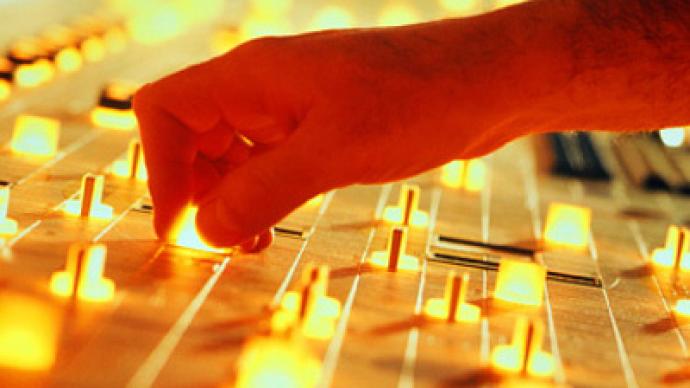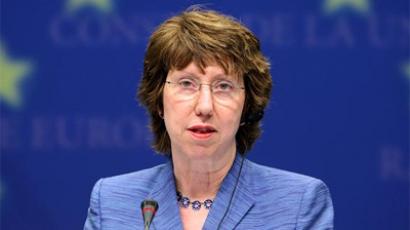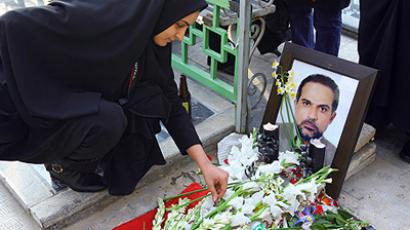Possession of nuclear technology is mark of leadership – Iran’s IAEA envoy

A country entering the nuclear sphere will have high-tech industry and a higher scientific level of its universities, hence it will become a leading country, shared Ali Asghar Soltanieh, Iran's envoy to the International Atomic Energy Agency (IAEA).
RT: You characterized sanctions imposed on your country as illegal. Is there any proof of that? Ali Asghar Soltanieh: Based on the four examples announced in Vienna, I maintain that the reason they imposed international sanctions on us is illegal. I ask international lawyers to correct me, if I am wrong. As proof number one, the imposed sanctions do not comply with clause 12C of the IAEA Charter. International inspectors have visited the reactors. They have documentation and samples of the tests. If they found inconsistencies, they would have sent a report to the agency’s director; the agency director would have presented the report to the IAEA’s management team which would have presented the report to the Security Council. That never took place in Iran. In 2003, we discussed these issues with the IAEA director and inspectors and none of them said there were any inconsistencies. More inspections were performed, but three European states – France, the UK, and Germany – with the assistance of the USA, put pressure on the IAEA and the report was given to the Security Council. That’s out of accord with the decisions of the IAEA and its Charter. Secondly, a report is presented to the IAEA management team in case there is evidence of changing of the nuclear program work for military purposes. But in reports presented by the agency over the past eight years, there was always a phrase stating that no proof of the Iran nuclear program pursuing military aims has been detected. And I appeal to the esteemed viewers to read the reports on the IAEA web site on the Internet. Iran does not violate any laws, and reports should not be presented to the IAEA management team. Thirdly, if a state does not let inspectors on to its territory and the reactors’ territory or interferes with their work, the issue is viewed by the Security Council, like it was with North Korea. But it’s a different situation with Iran. In Iran, inspectors did their job, and the agency’s director confirmed this – but they were not truthful.And lastly, on the decision of sanctions prepared by three countries, before it was sent to the UN, there was a very important phrase: “The discontinuation of uranium enrichment is voluntarily and not obligatory by law.” This phrase appeared in the decree under pressure from the countries which did not join in. So how can they say that we are going against the law, though we stopped uranium enrichment at the Isfahan reactor? But they wanted us to stop nuclear research. RT: There were many reports about a virus found in the reactors in Bushehr and Natanz. How could it get into the computer system of Iran’s reactors? How did you fix it? And who do you blame?AAS: You know that they have been speaking about a virus in our computer system for several years. Some invented viruses; others find ways to resist them. Our computer systems continue to work and uranium enrichment continues without any problems. This virus did not affect anything, even the centrifuge mechanism, which easily makes 1000 revolutions per second. In the Bushehr power plant, our friends – specialists from Russia – together with our Iranian scientists control the process and protect the system. It’s possible that the Americans and the Israeli’s are trying to stop our nuclear program. They failed to do so by means of sanctions and are now trying with the help of viruses or by means of terror actions and attempts on the lives of scientists. The entire world condemned it, because everybody respects scientists who are the world’s wealth. This only strengthens the determination of the Iranian people. Our people carefully check on their rights’ fulfillment and we continue to co-operate with the IAEA. RT: What about the Tehran reactor? You need nuclear fuel to continue working with this power plant. What are the details of this reactor’s operation which you are allowed to share?AAS: As for the Tehran power plant, which was built by Americans before the revolution, back then – I mean before the revolution – I worked for the IAEA. The agreement on new fuel production was signed back then. But unfortunately, the US did not allow the corresponding company to pass this fuel to us although we’d already paid over US$200 million for it. They did not give us the fuel or return the money. 20 years ago I was Iran’s representative in the IAEA, and I asked the director general of the IAEA to ask other countries for help to get the fuel. But none of them agreed. At that time, Argentina announced that it had succeeded in uranium enrichment on its own. We signed an agreement and ever since the Tehran reactor has been working on Argentinean fuel, received with the IAEA’s assistance. In 2009 we submitted an application to Mr. Baradei the director general of the IAEA and asked for fuel. In the negotiations with Russia, France and the US we agreed on receiving the fuel, but they put forward a condition that apart from money, we were to give them low-enriched uranium in the equivalent of the sum. And so we worked under the supervision of the IAEA and were prepared that Russia would give the fuel to France in order to transform it into nuclear fuel bars. But they did not agree to that before the signing of the Tehran treaty in the presence of heads of states of Iran, Brazil, and Turkey. We were ready to resume talks. It was a huge plan and we agreed to give Turkey 1200 kilos of low-enriched uranium to receive back from it 120 kilos of 20 per cent enriched uranium; then Russia was to give it to France so that it would transform it into nuclear fuel bars. It could have become a great reconciliation. We had to enrich uranium up to 20 per cent on our own. Fortunately, now we have 40 kilos of highly enriched uranium and we can form nuclear fuel bars. But I said, and my words were misinterpreted in some reports, that in case we produce nuclear fuel on our own, talks will be useless – time flies by fast, so before its too late, let’s gather at the negotiating table. Provide us with fuel for the Tehran reactor, which is designed for medical humanitarian purposes. It is designed to treat one million cancer patients. This fact is to be a stimulus for Russia, America and France to show their political will for talks on the basis of the Tehran agreement. But the Tehran treaty is still on the table.RT: Some Iranian officials point to the fact that the West does its best to prevent Iran from possessing nuclear technology, including nuclear arms and all the other nuclear power plants on Iranian territory. In your opinion, is that so? If yes, how can you comment on the position of the West?AAS: I am an expert in nuclear power. And I tell you that the nuclear technology is an indicator of progress at every level. If a country wants to enter the sphere of nuclear technology, build a reactor, or obtain a nuclear program, it must use the best professionals and engineers. This country will develop and its universities will develop and work using highly precise parameters and figures. The development will go fast day by day. That’s the reason why I am not surprised by the fact that Iran launched the Omid satellite into space. Iran is a country of developed nanotechnology and that’s the fruit of obtaining nuclear technology. A country entering the nuclear sphere will have high-tech industry and its universities will be at a higher level, too. The country will become a leading one. Some countries do not want Iran to be among the leaders and be strong in the sphere of technology. They know that we do not want to have nuclear weapons. But they do not want us to become strong in the sphere of technology.RT: What future of the Iranian nuclear program do you see? What’s Iran to do in the end?AAS: We hope that the countries which committed a historic mistake and involved the UN in it will admit this fact. We demand that they should stop their talks in New-York as soon as possible, so that we’ll be able to continue co-operation with the IAEA. The topic they are discussing there is a fiction about a laptop belonging to the US. We hope that our friends including Russia will assist freezing the talks and will not let the US take the IAEA prisoner, and that America will not make the IAEA its pet political organization. As a responsible state we are ready for all kinds of co-operation. We hope that talks on nuclear fuel for the Tehran reactor will become a new way to diplomacy. We hope that they will listen to our advice and will move from confrontation and sanctions to constructive cooperation in compliance with IAEA laws.














